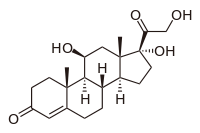
Photo from wikipedia
Despite the evidence for fetal immunization following maternal infection, it remained a mystery how the fetal immune system was primed by vertically-transmitted pathogens or microbial antigens, especially before its full… Click to show full abstract
Despite the evidence for fetal immunization following maternal infection, it remained a mystery how the fetal immune system was primed by vertically-transmitted pathogens or microbial antigens, especially before its full maturation. We previously demonstrated the capacity of fetal macrophages for endocytosing oncoprotein and allergens to bridge towards adaptive immunity in postnatal life. To investigate the immunological consequences of fetal contact with microbial antigens and the role of fetal macrophages in the defense against infection before T-cell development, we exposed gestational day 14 murine fetuses and their macrophages to flagellin and heat-killed Salmonella Typhimurium. Recipients with in utero exposure to Salmonella antigens or adoptive transfer of microbial antigen-loaded fetal macrophages were examined for immune responses to Salmonella antigens and resistance to virulent Salmonella challenge. Fetal exposure to microbial antigens or adoptive transfer of microbial antigen-loaded fetal macrophages could confer antigen-specific adaptive immunity. However, protective immunity against lethal Salmonella challenge was only granted to those receiving heat-killed Salmonella antigens, presenting as heightened recall responses of serum anti-lipopolysaccharide immunoglobulins and interferon-gamma. In immunized recipients surviving Salmonella challenge, their serum transfer to succeeding recipients provided immediate protection from lethal Salmonella challenge in preference to lymphocyte transfer, indicating a more active role of humoral immunity in the prevention of Salmonella invasiveness. Our study sheds insight on the role of fetal macrophages in immunogenicity to transplacental pathogens regardless of fetal lymphocyte maturity, paving the way for fetal macrophage therapies to enhance vaccine responsiveness or increase resistance to pathogenic microorganisms in perinatal life.
Journal Title: Biomedicines
Year Published: 2021
Link to full text (if available)
Share on Social Media: Sign Up to like & get
recommendations!